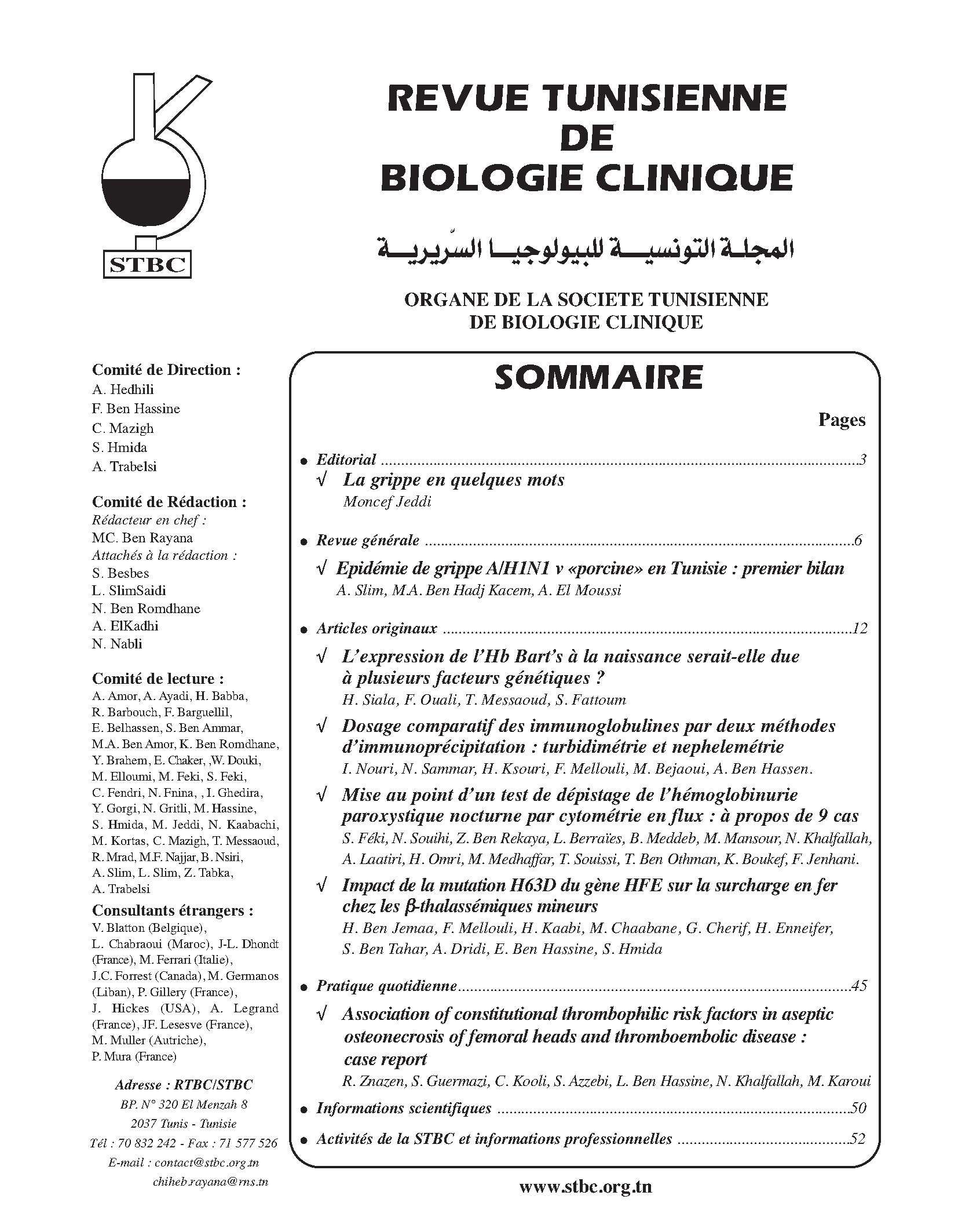Abstract
Paroxysmal Nocturnal Haemoglobinuria (PNH) is a rare disease in the world and which epidemiologic data lack in Tunisia. In this study, we present a rapid and low coast method for PNH diagnosis by flow cytometry that we adjusted in our laboratory, getting inspired by the several works described in the literature, adapting them to the economic reality of our country. Our technique is based on two peripheral blood cells - monocytes and granulocytes - which respectively express the GPI-dependant proteins CD14 and CD16.
Gating and PNH clone identification strategies was based on the CD14- cell percentage measure among CD33bright cell population in the monocytes gate; and the CD16-cell percentage measure among CD13bright cell population in the granulocytes gate. Owing to this technique, we were able to detect a GPI anchor deficiency for 9 PNH suspected patients for whom the Ham-Dacie test was negative, contributing then to the establishment of the first epidemiologic data for this disease in Tunisia.

This work is licensed under a Creative Commons Attribution 4.0 International License.
Copyright (c) 2023 Revue Tunisienne de BIOLOGIE CLINIQUE


